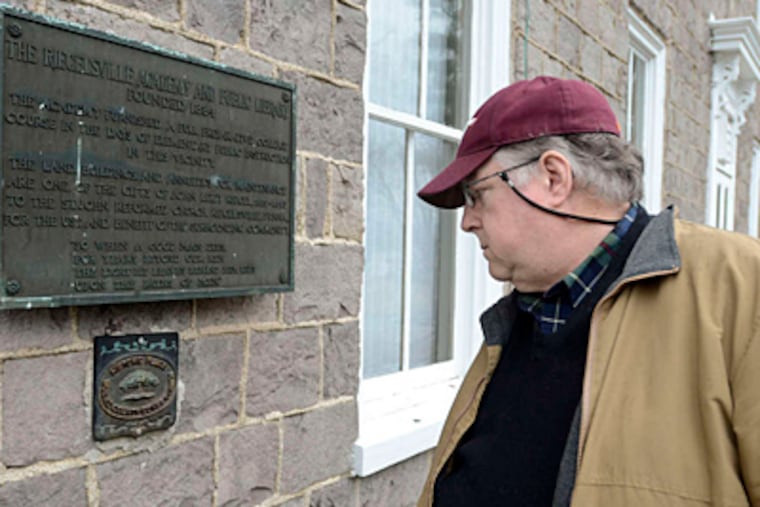Property taxes to rise across Philadelphia suburbs
Hundreds of thousands of property owners in Bucks, Chester, Delaware, and Montgomery Counties are getting something they probably don't want in the new year - higher real estate taxes.

Hundreds of thousands of property owners in Bucks, Chester, Delaware, and Montgomery Counties are getting something they probably don't want in the new year - higher real estate taxes.
Countywide increases, approved in December, affect the owners of all 382,304 real estate parcels in Chester and Delaware Counties. Some people are taking a double hit, as at least 27 towns in those counties also have increased taxes.
Bucks and Montgomery Counties kept their rates the same, but at least 28 municipalities raised real estate levies.
While the reasons vary, officials say the overarching reason is basic: Revenue is down; costs aren't.
The countywide dollar increases are modest - on average, about $33 per household in county taxes in Chester, and $20 in Delaware. However, some municipal increases will add more than $100 to annual bills.
And the towns raising their millages on top of the county increases include places in Delaware County where tax rates already are among the highest in the region - and the nation.
"Upper Darby is off the charts," said Ed Silbertstein, who owns a home there that the county estimates is worth $285,000. His annual tax bill is now $11,542; the majority of that goes to the schools, and some to the county, but the township's 7 percent increase adds $237.
Mayor Thomas Micozzie said in his budget message that 95 percent of the increase is going to police and fire services, including $4.7 million in pension contributions.
Taxes in Marcus Hook are going up 13 percent, or about $100 per household. Statewide, about 35 percent of the boroughs have raised 2013 real estate levies, estimated Edward Knittel, senior director of education for the Pennsylvania State Association of Boroughs.
Aside from the larger causes, the reasons can be as idiosyncratic as the towns themselves.
Take Riegelsville, in the northeast corner of Bucks County, where only 868 folks were counted in the 2010 census. It was spared any county tax increase, but the borough upped its rate 4.3 percent, from 11.75 mills to 12.25.
The 415 property owners in town, who pay $263 on average, will see about $10 to $15 added to their bills.
Primarily, that's to pay for the sudden loss of $200,000 to $300,000 that had been donated by a longtime benefactor to the ambulance service, Borough Council President Thomas A. Stinnett said.
But that's not the only reason. Some of the increase is targeted for repairs on the historically certified town hall.
Modena, just south of Coatesville in Chester County, saw its population drop to 535 in the 2010 census from 610 in the 2000 census, but its expenses have gone up. Borough administrator Ted Reed said the cost of "electrical work has increased, the insurance has increased" to cover property and vehicles, so the town is adding about $50 to the average tax bill.
Knittel, of the borough association, noted that its members shared some issues.
"For a number of boroughs, the census data that came out in 2012 showed reduced populations," and so "the liquid-fuels money that comes from the state was reduced."
He added that gas and diesel-fuel costs "went up significantly."
Compounding the problem was that "the earned-income tax for many municipalities came in lower in 2012" than projected.
That might have been the result of people having to take lower-paying jobs, he said.
As in Upper Darby, pensions remain a major expense for municipalities all over the state.
In Tredyffrin, Chester County's largest township, Manager William Martin said the increase of 3.1 percent would raise an additional $250,000 in 2013.
"One hundred percent" of the new money, he said, is for "post-employment benefits," mostly for retired police officers.
"This is our long-term liability," Martin said. "We have to start putting money away."
At the county level, the pressures are similar to those on the towns, said Douglas Hill of the County Commissioners Association of Pennsylvania, adding that about half the counties surveyed have raised taxes.
Aid is down and need for public-assistance among the citizenry is up.
"We know, anecdotally, that almost all the increases are driven by declines in state and federal funding and also by increases in caseload," he said.
The counties also have to pay for courts and election expenses, and what can be cut is finite.
For instance, he said, "you can't hold 10 percent fewer elections."